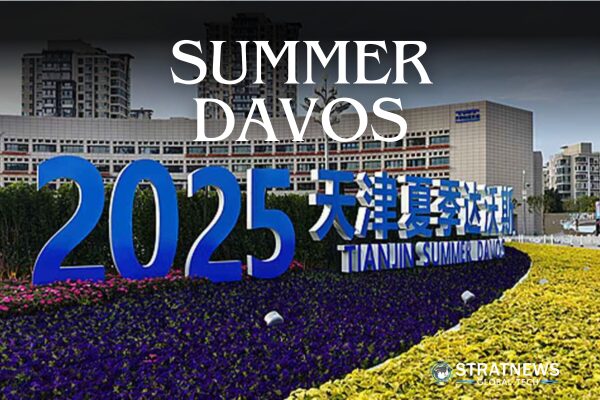Summer Davos 2025 Kicks Off in Tianjin, Focusing on Innovation and Global Growth
The 16th World Economic Forum (WEF) Annual Meeting of the New Champions, Summer Davos 2025, officially opened on Tuesday at the National Convention and Exhibition Center in Tianjin, China. This year’s event has drawn around 1,800 participants from nearly 90 countries and regions, making it one of the largest global gatherings in recent years.
Spotlight on Innovation and Entrepreneurship
Running from Tuesday to Thursday, the forum centres on the theme “Entrepreneurship in the New Era.” Discussions will explore five core areas: the world economy, China’s economic outlook, industrial transformation, investing in people and the planet, and new energy and materials.
The opening day featured vibrant discussions on several pressing global topics. These included the expanding role of artificial intelligence across industries, regulatory challenges arising from the shift towards blockchain-based financial systems, and breakthroughs in battery technologies that are fuelling electric vehicle growth and supporting the green energy transition.
Mirek Dusek, managing director at the World Economic Forum, highlighted China’s strong role in technological innovation. “We’re seeing Chinese unicorns and start-ups across fields like AI, blockchain, health tech, biotech, clean tech, and space tech—driving the economies of tomorrow,” he said.
Policy Innovation and Inclusive Growth
Rania Al-Mashat, Egypt’s Minister of Planning and Economic Development, stressed the need for a resilient and inclusive policy framework. “Sluggish growth remains a key global concern. The World Economic Forum plays a unique role by uniting policymakers, businesses, civil society, and entrepreneurs. Entrepreneurship isn’t just about new technology—it’s also about rethinking how we govern and build economic resilience,” she said.
One of the event’s highlights was the unveiling of the “Top 10 Emerging Technologies of 2025.” The list features innovations in engineered biotherapies, Internet of Things (IoT), and smart transportation. Experts believe these technologies are poised to drive rapid transformation across economies and societies.
Jeremy Jurgens, head of the WEF’s Center for the Fourth Industrial Revolution, noted the growing impact of IoT devices. “These devices are not only multiplying but are beginning to interact with each other, creating intelligent environments. This trend will scale quickly and reshape daily life,” he explained.
China’s Role in the AI Revolution
China’s influence in artificial intelligence also took centre stage. Sheikh Tanjeb Islam from the WEF editorial team spotlighted the participation of key Chinese AI firms, particularly from Hangzhou. Known as China’s tech hub, the city is home to six influential AI companies dubbed the “Six Little Dragons.”
Four of these emerging tech giants—Game Science, DeepSeek, Unitree Robotics, and DEEP Robotics—are attending this year’s Summer Davos and are scheduled to speak. The group also includes BrainCo and Manycore Tech. These companies, which have risen to prominence over the past two years, showcase China’s growing leadership in global AI development.
As the Summer Davos continues, the forum is expected to provide valuable insights into how innovation, entrepreneurship, and cross-border collaboration can shape a more resilient and inclusive global economy.
with inputs from Reuters


